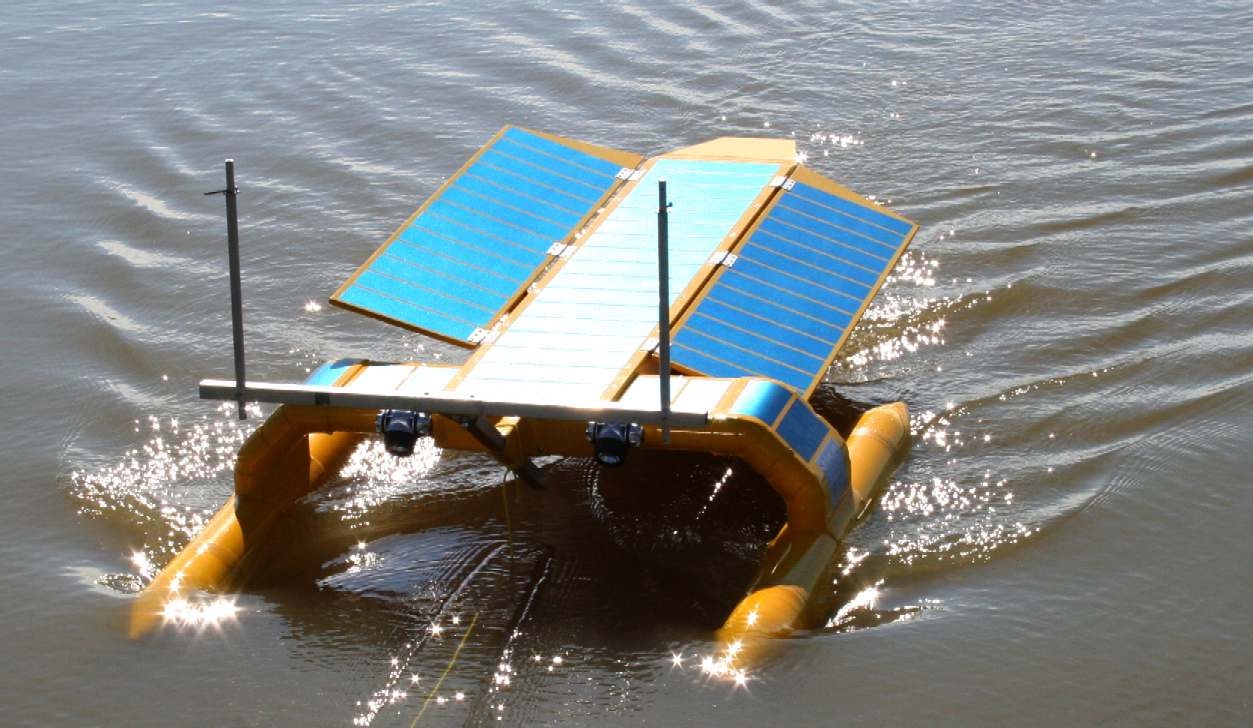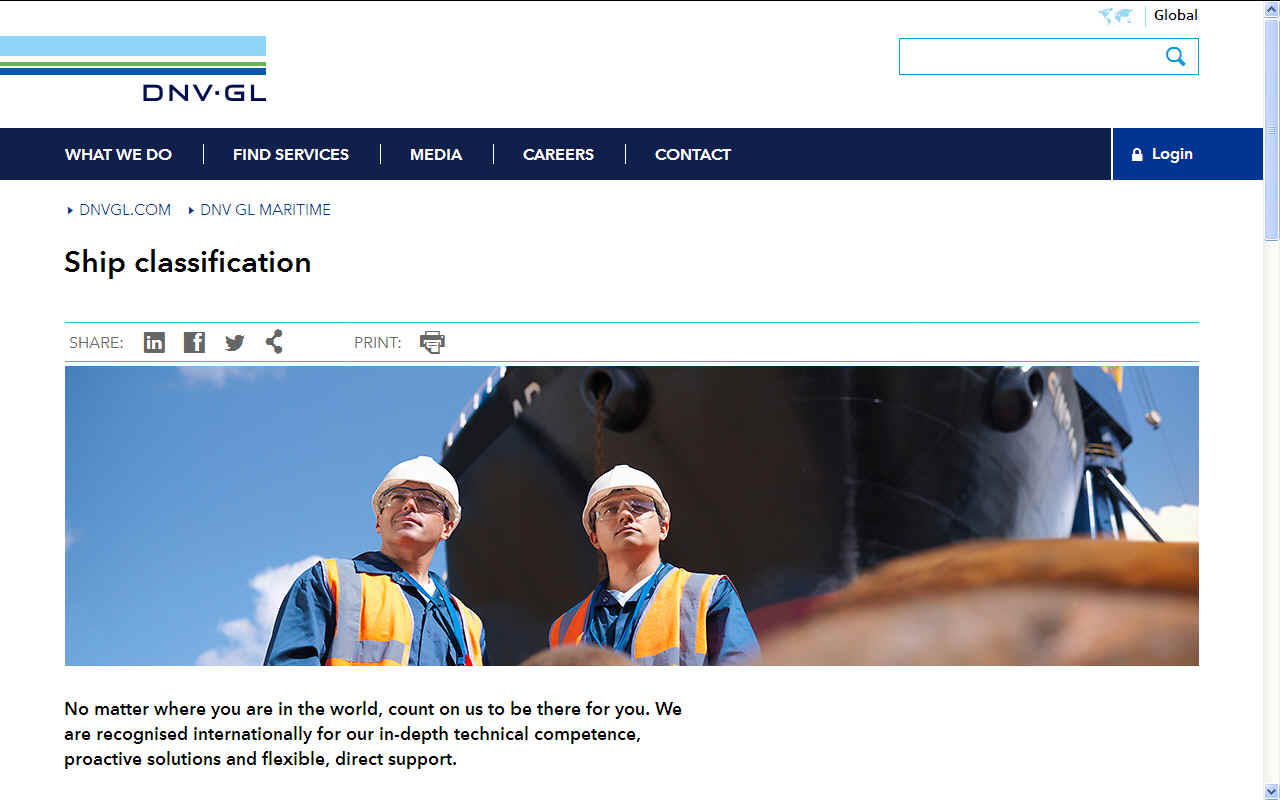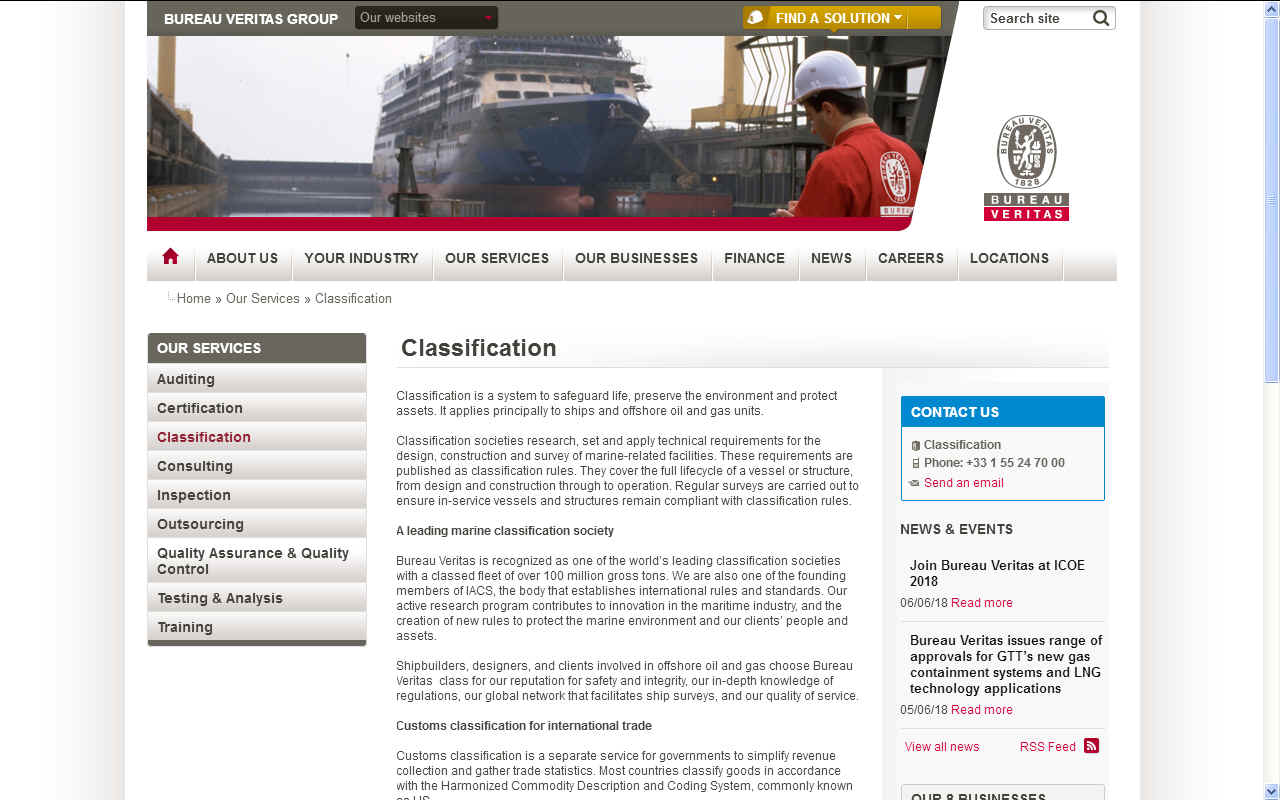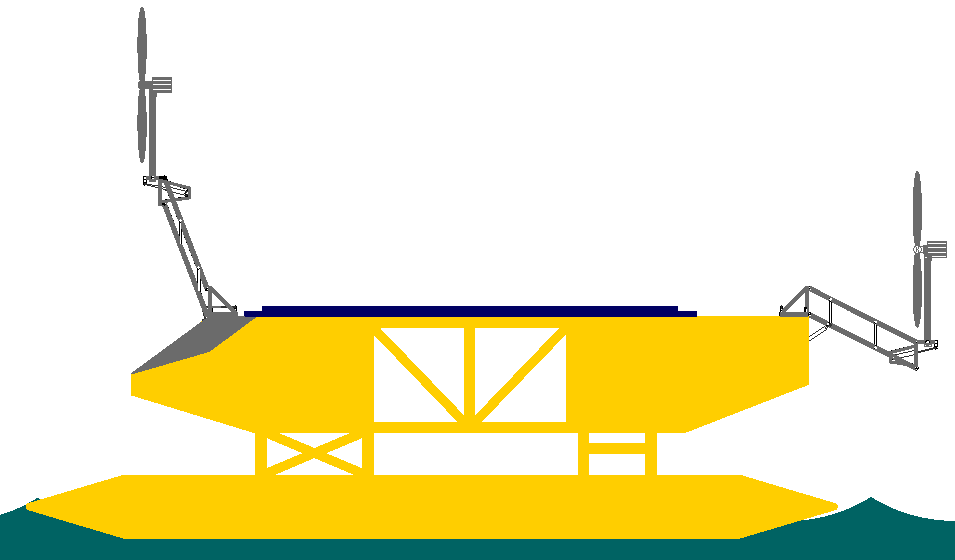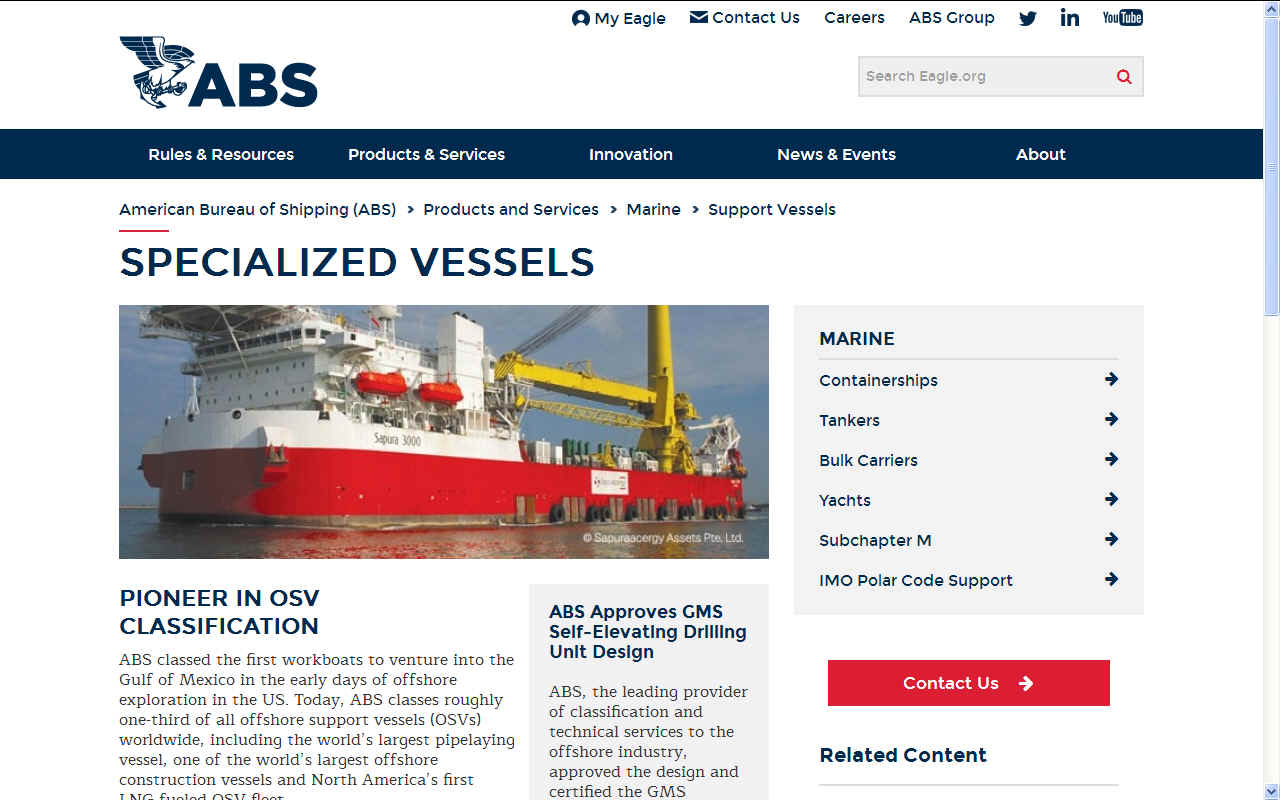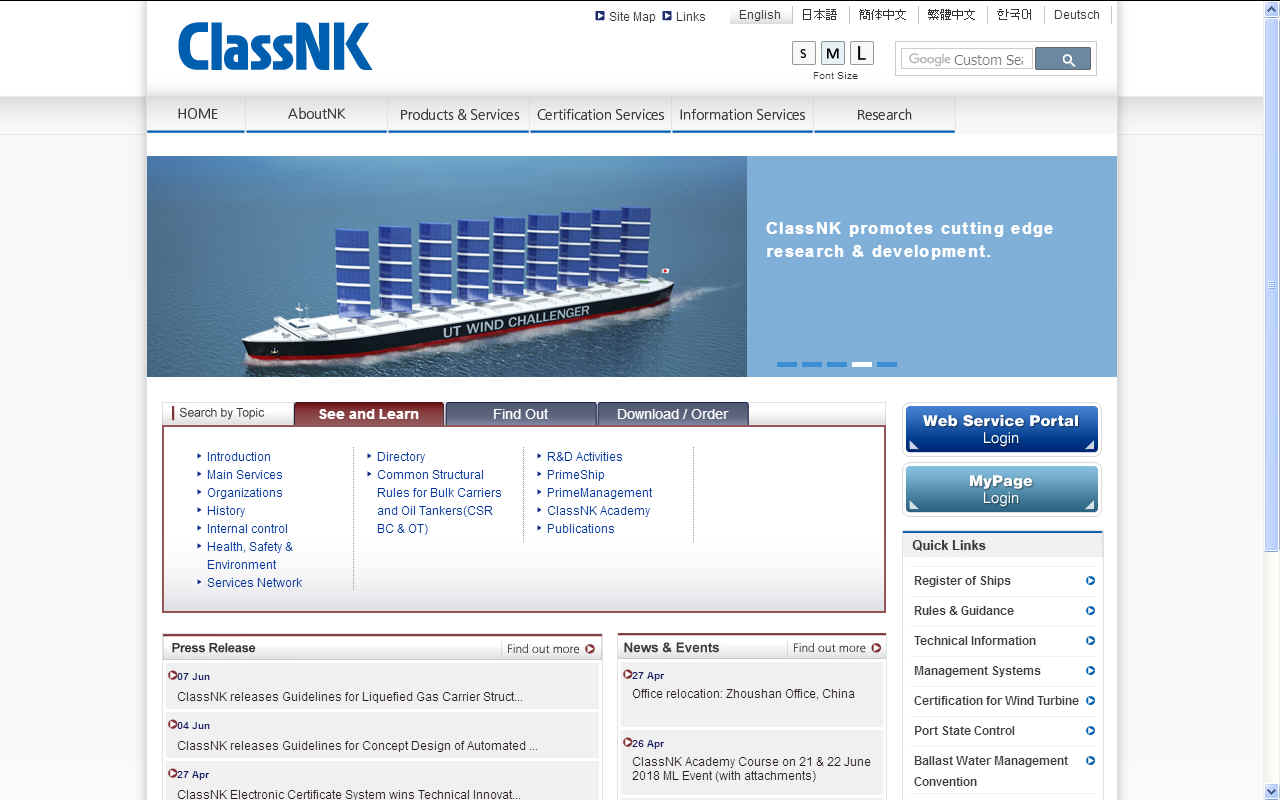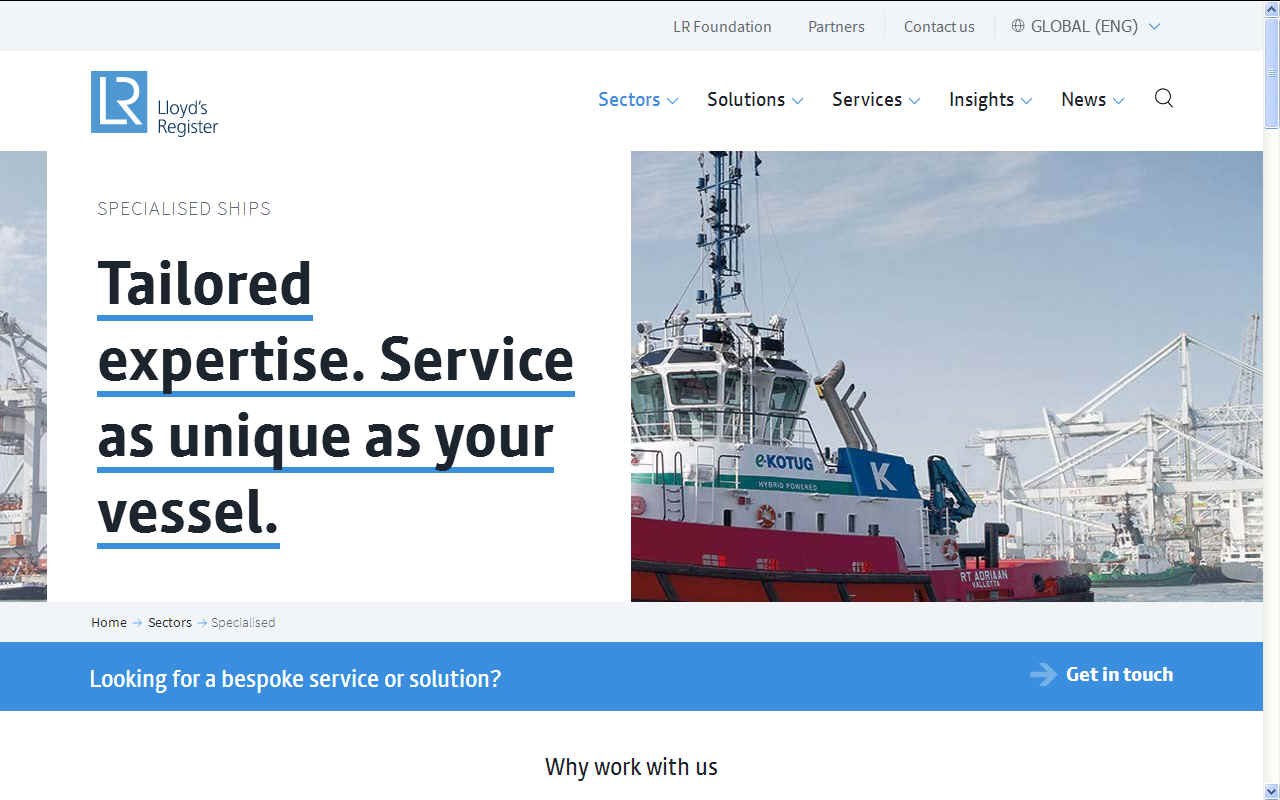|
LLOYD'S REGISTER
ABOUT - CLIMATE CHANGE A TO Z - CONTACTS - DONATE - FOUNDATION - HOME - OCEAN PLASTIC A TO Z Please use our A-Z INDEX to navigate this site
OPEN WATER - SeaVax is seen here during open water floatation trials. Please note that this is a small (proof of concept) version of any ocean or river floating dustcart that we hope will be tested on the south coast of England as the project progresses. SeaVax is a selective filtration machine that can be configured to target solid plastics and particles. The machine could also be used in oil spill emergencies, or as a selective fishing vessel. The platform could thus be useful in many ways in the future. Eventual classification will depend on the function and performance of the vessel.
The description and classification of SeaVax & AmphiMax research workhorses, and the Elizabeth Swann autonomous energy harvesting boat is one of the overall project development targets where no such vessel formats currently exist, for which perhaps, funding may be provided by the United Nations, G20 or other long-term beneficiaries.
There is no legal requirement for any boat or ship builder to seek classification or to construct a vessel to any particular formula for approval by any classification society. Such classification could though be beneficial to all parties, where the owners of the world's 60,000 strong fleet of ships, may benefit in the short and long term, as to such research.
Regardless of the considerable additional administrative burdens, at the appropriate juncture COF will seek to generate additional funding to carry out such tasks, or to put in place an alternative that achieves the same.
DNV-GL - Claim to be proactive and flexible. They have in the past encouraged innovation in terms of clean energy for shipping.
TEMPORARY CLASSIFICATION
In naval terms, vessels are sometimes launched with a temporary designation and reclassified once their capability is determined. Hull classification varies from country to country. There is no international agreement as to class.
A heavily modified or re-purposed ship may receive new symbols and classification, and either retain the hull number or receive a new one. The system of naval symbols has changed a number of times since it was introduced in 1907, and for this reason ships' symbols sometimes change without any physical alterations to a ship.
BUREAU
VERITAS - Classification is a system to safeguard life, preserve the environment and protect assets. It applies principally to ships and offshore oil and gas units.
NOAA:
NATIONAL OCEANIC & ATMOSPHERIC ADMINISTRATION HULL CODES O: Oceanographic AGE: General Purpose Experimental Ship (AGE = Auxiliary General Experimental) LCP: Landing Craft, Personnel
Prototype
SeaVax vessels will be experimental, conducting oceanographic
research and surveillance generally. The object is to refine
and prove the ocean cleaning concept, that also involves
avoiding plankton, fish and marine mammals selectively. it may
then be appropriate to assign such craft the AGE or RV code to
include: O, where the vessel is a blue water, endurance
machine. Hence: ORV. But where solar and wind power is a
factor in the experimental stages: AGE. Clearly, the
classification will change once the experimental stages are
passed and ocean cleaning operations begin.
A CLEAN FUTURE - The Cross Channel Challenger (CCC) is a zero emission project currently on the drawing board looking for backing in 2020-21 over 75 weeks, to develop a transport that is zero carbon. Vessels that are green could transform coastal tourism, making it socially acceptable in the face of a planet that will roast unless we do something about it.
VESSEL CLASSIFICATION 100-A-1 LLOYDS REGISTER
Classification is then time related, it expiring, regardless of the fact that the vessel has not changed physically.
After any accident such as a fire, a ship has to be resurveyed to establish its classification. The advantages for a ship owner to have their vessels classified and to keep them ‘in class’ are numerous, as the construction and maintenance of a ship up to the standard required is mandatory for almost all insurance, chartering, financing, and so on, and also for the issue of statutory certificates required by international conventions such as SOLAS.
In view of the specialist function of SeaVax and the not-for-profit motives, it may benefit any international alliance to provide specialist surveys and insurance to reduce the operational overheads and streamline missions.
AMERICAN
BUREAU SHIIPING - The heart of their classification organization, ABS Rules & Guides are derived from principles of naval architecture, marine engineering and related disciplines.
CLASSIFICATION SOCIETIES
Currently, more than 50 organizations worldwide describe their activities as including marine classification, some of which are listed below. Twelve of these are members of the International Association of Classification Societies. The largest are DNV GL, the American Bureau of Shipping, Nippon Kaiji Kyokai (ClassNK) and
Lloyd's
Register. Classification societies employ ship surveyors, material engineers, piping engineers, mechanical engineers and electrical engineers, often located at ports and office buildings around the world. 100 = suitable for seagoing service, A = constructed or accepted into Lloyd's Register class and maintained in good and efficient condition, and 1 = good and efficient anchoring and mooring equipment.
100 YEAR STORM
RESEARCH
& DEVELOPMENT - ClassNK offers a broad range of services that encompass every aspect of ship classification from the approval of vessel and machinery plans to the survey and registration of the ship and ship installations, approval of materials, equipment and outfitting gear, as well as the assessment and registration of ship safety management systems and security systems.
INNOVATION LEADS
ABS is easier to deal with than Lloyd's if you want to try an unusual design or construction process. If you can back up your idea with facts and figures, ABS will approve it while Lloyd's tends to take a more conservative view of any deviation from the norm.
ABS has made a concerted effort to reach the yachting market, and ABS representative Bob Curry worked extensively with the Offshore Racing Council's Technical Committee and several naval architects, notably Gary Mull and Olin Stephens, to devise fair and realistic scantling rules for offshore racing yachts. The result is a comprehensive guide, "Building And Classing Offshore Racing Yachts," that is both up-to-date in terms of technology as well as in a simple engineering format for designers to use.
LLOYDS - Lloyd's Register Group Limited (LR) is a technical and business services organisation and a maritime classification society, wholly owned by the Lloyd’s Register Foundation, a UK charity dedicated to research and education in science and engineering.
INSURANCE
Classification societies exist in the shipping industry for insurance purposes to provide a uniform worldwide standard, but why is this needed in yachts where a normal surveyor could provide much the same service at far lower cost? For one thing, yachts have become small ships with all the myriad systems and complexities that would be beyond the grasp of any single surveyor and, second, with the growing variety of materials and techniques, the societies provide an information service that shares the success of certain methods and remembers the failures of others.
CONTACTS
General
OFFICES A-Z
Aberdeen
Glasgow London
Lowestoft
ABS - AMERICAN BUREAU OF SHIPPING
LINKS & REFERENCES
https://lloydslist.maritimeintelligence.informa.com/LL1129143/Zerocarbon-shipping-to-double-freight-costs https://www.bureauveritas.com/ https://www.lr.org/en/classification/
This website is provided on a free basis as a public information service. Copyright © Cleaner Oceans Foundation Ltd (COFL) (Company No: 4674774) 2020. Solar Studios, BN271RF, United Kingdom. COFL is a charity without share capital. The names Amphimax™, RiverVax™ and SeaVax™ are trademarks.
|
